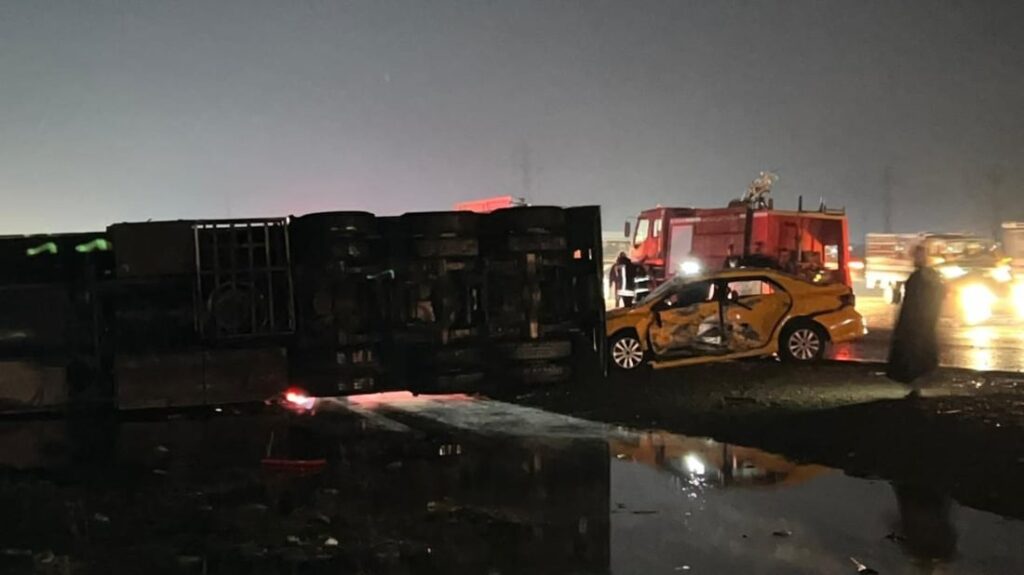Israel's attack on Iran: What we know so far

Israel launched a long-anticipated attack on Iran in the early hours of Saturday, 25 days after Iran carried out its largest-ever attack on Israel.
Contrary to earlier suggestions by Israeli politicians, the attack did not target nuclear or other strategic facilities.
Here is what we know so far.
Why did Israel attack Iran?
Since the Hamas-led attack last October and the ensuing war on Gaza, Israeli attacks on Iran and its allies have drawn Tehran into direct confrontations with Israel.
Israel said its strikes were a reply to a massive Iranian ballistic missile attack on 1 October, which Iran said it launched in response to Israel's killing of Hamas leader Ismail Haniyeh in Tehran and Hezbollah Secretary General Hassan Nasrallah and an Iranian commander in Beirut.
What were the targets of the attack?
Israel's military said its aircraft "struck missile manufacturing facilities" used to produce the missiles fired in that attack and in a similar incident in April.
It added that it "struck surface-to-air missile arrays and additional Iranian aerial capabilities". The operation had been concluded, the military said.
The army said it hit around 20 sites over several hours in Ilam, Khuzestan and Tehran.
"If the regime in Iran were to make the mistake of beginning a new round of escalation, we will be obligated to respond," the Israeli military said.
Contrary to earlier speculations, the attacks did not target nuclear facilities or top Iranian leaders.
What damage and casualties have been caused?
Two Iranian soldiers were killed in the attack, according to a statement by the Iranian army, published by Iran's news agency IRNA.
"The army of the Islamic Republic of Iran, in defending Iran's security and protecting the people and Iran's interests, sacrificed two of its fighters while countering projectiles from the criminal Zionist regime," the statement said.
Iran said its air defences activated and successfully repelled many of the strikes, with others causing "limited damage".
What happened in the aftermath of the attack?
Shortly following the attack, Iran and Iraq announced the suspension of flights until further notice.
But flights were resumed later on Saturday, according to statements by both countries.
Iran said its airspace had been reopened and flights were operating as normal.
The semi-official Tasnim news agency reported that "the situation in the capital [Tehran] is normal, including at Imam Khomeini and Mehrabad airports".
Will Iran respond?
The Iranian foreign ministry issued a statement later on Saturday asserting Iran's right to respond to the Israeli attack.
“On the basis of its inherent right to legitimate defence, stipulated in Article 51 of the UN Charter, the Islamic Republic of Iran considers itself to be rightful and duty bound to defend against the foreign acts of aggression,” the statement read.
"Iran will employ all of the physical and spiritual capabilities of the Iranian nation to protect its interests and security," it added, according to Tasnim.
How did the world react?
Saudi Arabia condemned the Israeli attacks as a violation of Iranian sovereignty. The foreign ministry emphasised the kingdom's "firm position rejecting escalation of the conflict in the region", which it said "threatens the security and the stability of countries and peoples".
The White House released a statement shortly after the attack began, calling it "an exercise of self-defence" in response to Iran's ballistic missile attack earlier this month.
US Defense Secretary Lloyd Austin "reaffirmed the ironclad commitment of the United States to Israel's security and right to self-defence" during a call with his Israeli counterpart, Yoav Gallant, on Saturday.
"The secretary emphasised the enhanced force posture of the United States to defend US personnel, Israel and partners across the region in the face of threats from Iran and Iran-backed terrorist organisations and the US determination to prevent any actor from exploiting tensions or expanding the conflict in the region," read the statement.
UK Prime Minister Keir Starmer said: "We need to avoid further regional escalation and urge all sides to show restraint. Iran should not respond."
France also urged all parties "to refrain from any escalation and action likely to aggravate the context of extreme tension".
Pakistan branded the attack "a dangerous escalation in an already volatile region", while Malaysia said it was a “clear violation of international law."
The United Arab Emirates (UAE) condemned the attack on Iran and urged maximum restraint.
"The UAE strongly condemns the military targeting of the Islamic Republic of Iran and expresses deep concern over the continued escalation and its impact on regional security and stability," read a statement from the UAE foreign ministry, emphasising the "importance of exercising the highest levels of restraint and wisdom to avoid risks and the expansion of conflict".
Iraq denounced global inaction against the "occupying Zionist entity", which it said was continuing its "aggressive policies and widening the conflict in the region through blatant attacks that it carries out with impunity".
Meanwhile, the Palestinian movement Hamas on Saturday condemned Israel's attack on Iran as an act of "aggression".
"The Islamic Resistance Movement [Hamas] strongly condemns the Zionist aggression against the Islamic Republic of Iran, targeting military sites in multiple provinces," the group said in a statement. "We consider this a flagrant violation of Iranian sovereignty and an escalation that threatens the security of the region and the safety of its people, placing full responsibility on the occupation for the consequences of this aggression, supported by the United States of America."

